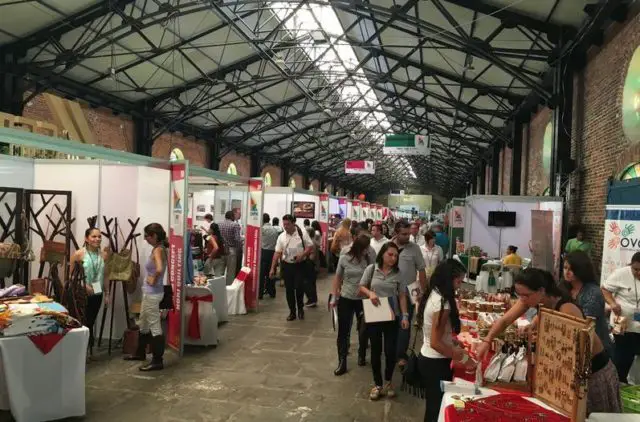The ExpoPYME 2019, an activity led by the Ministry of Economy, Industry, and Trade, is a space for meeting, knowledge, exhibition, sale, commercial, financial, and non-financial contact, for the strengthening of enterprises and micro, small, and medium enterprising companies that boost the development of the Costa Rican economy.

The 2019 edition will take place from June 28th to 30th, and has as central themes: innovation, export, regionalization of participating SMEs, and green and creative economy.
The Ministry of Culture and Youth (MCJ) leads the call for Cultural Mipymes of Crafts and Design, which opened on the past of April 15th and will run until April 30th, 2019.
As reported by Loida Pretiz, MCJ advisor on cultural entrepreneurship issues, “participants whose handicrafts and design products, made in Costa Rica, meet different requirements will be accepted, which will be evaluated by a Selection Commission. For being an event that promotes entrepreneurship, a fundamental criterion for choosing the participants is the level of formalization and the advances in the business aspects”.
Among the requirements mentioned by Pretiz, quality, identity, originality, and innovation stand out. In the following link you can check the participation rules and the registration form: https://tinyurl.com/y5a5ejo4
Participation categories: Crafts and Design
This section of ExpoPYME 2019 emphasizes the product of craftsmanship and design with a Costa Rican identity. This segment does not include artisanal products such as food, agroindustry, soaps, creams, medicines,

Participants must have a product that is in the following categories of crafts and design:
Traditional crafts. They are products made mainly by hand, although you can use tools and mechanical equipment. They are made for every day, aesthetic, utilitarian, and ritual use. It is part of the Intangible Cultural Heritage; traditional knowledge, crafts and techniques, through which expresses the collective cultural and natural identity of the territory where it is produced. It is in constant transformation without losing its essence. This category is sub-classified in:
Indigenous crafts. They are products elaborated to satisfy daily, aesthetic and ritual needs; they are made through processes mainly by hand and with manual tools. They use and transform the natural raw material, preferably local, with processes and designs, shapes, colors, finishes and aesthetic elements of the collective cultural identity of the indigenous peoples.
Mestizo crafts. They are products that integrate trades and craft techniques, resulting from the meeting of different cultures and the mixture of their traditional knowledge in rural or urban communities, such as saddlery, pottery, weaving, among others, that satisfy the productive, aesthetic, and symbolic needs with collective identity.
Contemporary crafts. They are products made with a great diversity of craft trades and techniques of the contemporaneity, which integrate design processes aimed at the globalized market. This craft is sub classified in:
Neo crafts. They are the production of utilitarian and aesthetic objects that, from various handicraft trades, design processes, technological tools, and individual or collective identity, revitalize the cultural and natural heritage.
Craft souvenir. It is a product with souvenir function that represents the cultural identity of a specific territory, hand-made with traditional techniques or with semi-industrial production processes, mainly aimed at tourism, as it is generally light, easily transportable, collectable, and of low cost production.
Design. It is understood as a trans-disciplinary, creative, complex, and diverse process that involves researching, programming, projecting, planning,
In the following link, you can check the participation rules and the registration form for “Mipymes Culturales de Artesanía y Diseño”. If interested in participating in ExpoPYME 2019: https://tinyurl.com/y5a5ejo4 For inquiries, you can write to the email: [email protected]

